
When Protomartyr released Ultimate Success Today, they knew it was the end of something. The record was the conclusion of a five-album arc, a celebration of a decade together. (A characteristically doomy celebration, but nevertheless.) It arrived right in the middle of 2020; the future was uncertain. They questioned the viability of a life in music; they struggled to find inspiration under the weight of the pandemic. Three years later, they have returned once again. Formal Growth In The Desert, the album they released in June, marks the beginning of a new chapter.
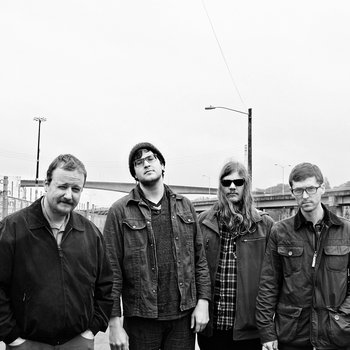



Vinyl LP, Compact Disc (CD)


It’s not a neat post-pandemic narrative. Formal Growth In The Desert emerged from a lot of life changes for frontman Joe Casey. He lost his mother after a long battle with Alzheimer’s, and he made the final, painful decision to leave the childhood home he’d always lived in. On the other hand, he got engaged, and he strove to let just a little bit of optimism into Protomartyr’s new music, celebrating loved ones while still taking on the crumbling world around him. At the same time, guitarist Greg Ahee exited his pandemic funk thinking about structuring music differently. Partially thanks to his experience scoring two short films, Ahee conceived of the new Protomartyr songs in broader terms—more textural, expansive, narrative. The result was an album that didn’t just find Protomartyr still swinging, but actually evolving.
Since then, the band has taken the music on the road. On a July afternoon, during a break in touring, Casey and Ahee called over Zoom to share some of the records they’ve been digging this year. Casey notes he gets a lot of new favorites from the music his bandmates add to their pre-show venue playlist, or by checking out bands that could open for Protomartyr. Ahee’s listening is skewed towards trying to make normal life feel more vibrant, and away from any artists that might fall into the same aesthetic as Protomartyr; his picks reflect what was inspiring him while making Formal Growth In The Desert. Between the two, Casey and Ahee cover a lot of ground. Read their recommendations below.
Joe Casey
Lewsburg
In Your Hands
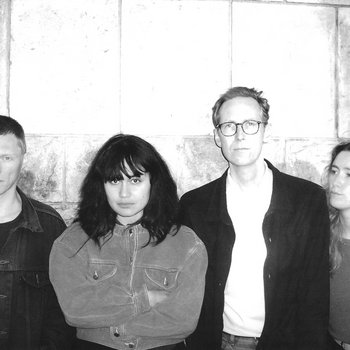
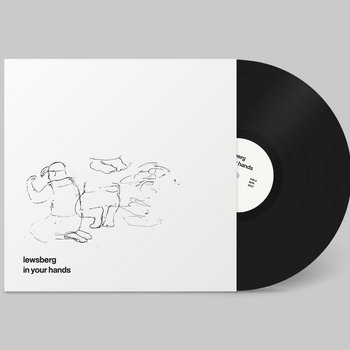

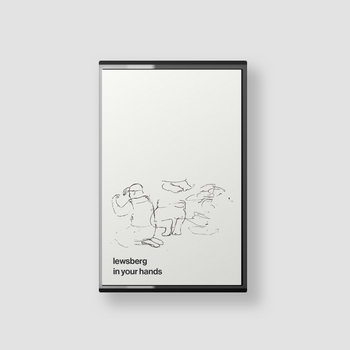

Vinyl LP, Compact Disc (CD), Cassette



“I don’t trust my own musical taste. If other people I trust say “check this band out” then I will. We’re going to be playing some shows with [Lewsberg] later in the year in Europe. I wanted to see what they sounded like. I hope they end up being nice people, because if they end up being jerks on tour I might have you retroactively delete this suggestion [laughs]. It’s minimalism done the correct way. It’s not boring. The one I really dig is ‘Getting Closer.’ It’s the lyrics—the limited amount of words done correctly, almost like a perfect poem. The way he’s singing, there’s no off point in it. It’s almost like a puzzle box or a diorama. A perfectly designed song.
Sometimes less is more. I think that’s always a good lesson to learn when you’re writing a song. We try to do that a lot. A song is only as long as it should be with us. This reminded me of how I was singing early on in the band, where I was trying to not put any kind of emotion into my delivery. Since then I’ve tried to add more but found that maybe my voice isn’t the most emotional voice. I appreciate his voice. All this speak-singing thing has been overblown lately. Everybody’s doing it. It’s always refreshing to find it can be done in an interesting, unique way.”
Grave Goods
TUESDAY. NOTHING EXISTS







Vinyl LP




“I do enjoy things that sound quote-unquote like post-punk, but it’s increasingly hard to find somebody doing something new with it. There’s only a handful of the current bands that are getting that label that I actually appreciate. This one’s interesting because I know the drummer [Sarah Grimes]. She’s also the drummer in Oh Boland and then she’s in an experimental electronic group called Rising Damp. Three different Irish bands that sound completely different. This is more an appreciation of the drummer, just because in each one it’s a completely different drumming style, the fact she is doing triple duty.
I was listening to a bunch of bands trying to find people who could open for us. This was kind of similar but a different vocal style. This has got the drive and the minimalism I like with good post-punk. You can tell they’re thinking about how their songs are recorded. The mixing is different and exciting. I can’t tell if it’s just because I’m getting old or everyone’s sounding the same. No offense to the guy who produced all those records, Dan Carey—they all started sounding exactly the same, because one guy was doing it. There’s talk about how that’s what’s happening to pop now—Jack Antonoff is doing all of it, so it all sounds the same.
The group of bands we came from, we never thought we sounded like any of the other ones and I don’t think they thought they sounded like us. I think there wasn’t so much a scene as like-minded bands. Now there’s a scene or whatever. People obviously take influence from bands—I want to sound like ‘that,’ or whatever. For us, we were just trying to sound competent. We knew what we didn’t want to sound like more than what we wanted to sound like.”
XV
On The Creekbeds On The Thrones
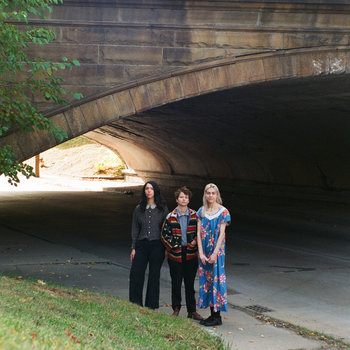
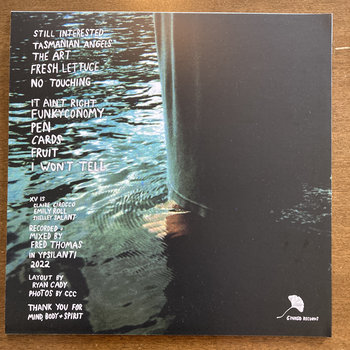
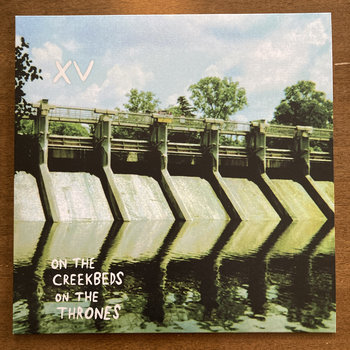

Vinyl LP


“We have played shows with them and will probably play more with them in the future if they’ll let us. It’s a local Detroit band made up of members of other bands. What I like about this record is the lo-fi quality of it. I like how a lot of the songs seem to grow through the history of the song. It’s kind of a reductive comparison, but they do remind me of The Raincoats a lot in that off-the-cuff improvisational thing. It’s always a good reminder to follow some happy accidents in songs and see where it takes you. I like the freedom they represent. They’re doing their own thing. I don’t see a connection to a bunch of other bands, even though they’re connected to the scene.
They’ve definitely been in the scene a long time. On tour you’ll go places and people will be like ‘How’s the Detroit scene?’ On this tour, a lot of people were like ‘Do you know about this band XV?’ It seems word’s getting out about them. They probably don’t need me to talk about them on Bandcamp.”
Abner Jay
True Story Of Abner Jay





Vinyl LP, 2 x Vinyl LP



With the other picks, it seems like the remit of this article is to give shine to underrepresented bands. I had a big list, and I thought ‘Let me put something on in case people don’t like new bands.’ [Abner Jay’s] songwriting, and the way he takes on an old standard, is amazing to me. His story is amazing. I picked this one because it seems to be the most widely available. The song ‘I’m So Depressed’ appears on almost every one of these reissues. It’s his signature song. There’ll be a more R&B version on one album, one that’s complete blues. The name of his first record was Terrible Comedy Blues and the first song is ‘I’m So Depressed.’
When I was in college, I definitely went through a blues phase. Before our new record, it was like eating your vegetables. I decided I needed to listen to more folk music because it’s some of the best, most timeless lyrics. It’s good to study that stuff when you’re trying to come up with new lyrics. To see what the tried and true is. I finally have a record player after never having had one before. That opens up new discoveries of getting old blues and folk records.”
Greg Ahee
Cindy Lee
What’s Tonight To Eternity
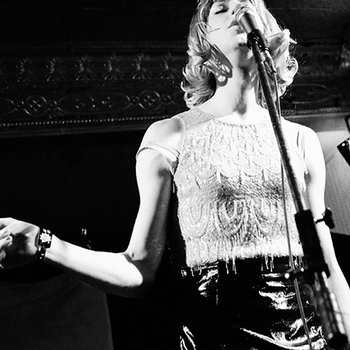


Vinyl LP

“I don’t know Pat Flegel at all, but I’m very close with their brother Matt, and we’ve done a lot of stuff with his band Preoccupations. I was always drawn to Pat’s music. I’m projecting a little, but I think me and Pat have a similar relationship with the guitar, where in a lot of ways it’s our main instrument but we also despise it and push the boundaries of what we do with it or get rid of it entirely sometimes. Listening to this record specifically, it sounds like Pat’s not just coming to terms with music, but all these aspects of what it means to play music. I read it’s loosely based on Karen Carpenter’s life. You can hear that. I think what I’m drawn to is the loneliness in pop music.
I like that it’s all over the place in some ways, but the production holds it together. I tend to not really like lo-fi music these days all that much. To me, there has to be a reason for it. I like plenty of Guided By Voices records, plenty of lo-fi records—when it makes sense and there’s a context to it. But nowadays I don’t want something to sound shitty for the sake of sounding shitty. Cindy Lee does it in a way that sounds like the haunting quality of AM radio. It takes on almost a horror aspect. I listen to music at this point, 95 percent of the time, on headphones. Almost always, I’m completely alone. I like stuff that feels like it can soundtrack my life if I go for a walk, or even at home staring at the wall.”
Anadol
Felicita


Vinyl LP, Compact Disc (CD), Cassette
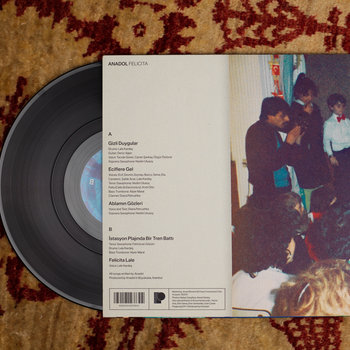
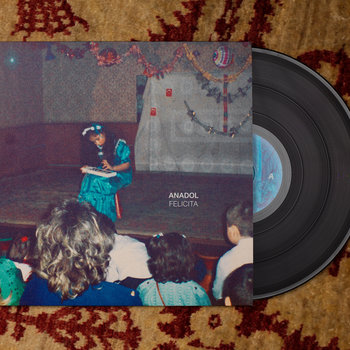


“I might’ve found this one on Bandcamp. As I said before, I’m looking for music that can make mundane things feel more important. This record does that for me. It’s so expansive, but can also feel claustrophobic. I don’t know how she does it. The way she combines sounds to make you feel like it’s the most complicated thing you’ve ever heard but also that you’re alone in a room with her. That means I can listen to it over and over and still find something new. That’s what I want with newer artists. I don’t want to feel like I understand it. I don’t understand this at all. I’ve listened to it so many times and there’s still so much I don’t know about it.
I’m half Arabic and half Western European. I always wanted to try and bring in subtle aspects of different types of Arabic music into what we do, and it’s hard to do because it’s a completely different scale. Weirdly, what I took influence from there is Dick Dale. I think he was half Lebanese and half Polish. He tried to bring that into what he did, which is why the surf music ended up being so Arabic sounding. I’m always fascinated by people who take these disparate parts of their upbringing and try to mash them, or make them more modern. To me that’s where most of the best art comes from. Anadol does that really well.”
Mark A. Mitchell
How Can I? / All Your Love


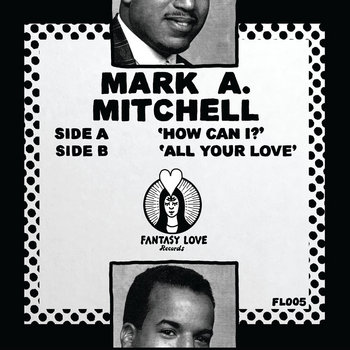



7" Vinyl




“I don’t know much about him besides the handful of singles he did in the early ‘80s. This one had a connection with Juan Atkins and Cybotron. Rick Davis, the other guy in Cybotron, produced this. I think it gives it that nightmarish feel to the music, with the more standard love song vocals. That mix always fascinated me. Growing up, there was this record store called Record Time. It was one of the epicenters of at least a later wave of techno in the ‘90s. They had a room that was just all Detroit techno, and it was massive. When I got into vinyl when I was in seventh or eighth grade, I’d have my parents drive me there and I’d just spend time in the techno room, and there’d be all these Detroit techno legends just hanging out there. As a kid, it was surreal. It’s how I got into a lot of that stuff.
I remember hearing this song then, but it was pretty expensive at the time. It was only available as a 7-inch up until recently. I was always drawn to that early dance and techno era because these guys weren’t sure what they were doing. They were kids. They were just messing around and trying to sound like Kraftwerk. That’s what Cybotron was. ‘Alleys Of Your Mind’? They’re trying to sound like Kraftwerk. They’d take in elements of Chicago house and mix it with German sounds. It made it so interesting. This has that similar feel to me, but it takes off the disco edge of house and adds an iciness. It’s a weirder, sadder, scarier sound, and I think that was a big starting point for a lot of the Detroit techno that followed.”
Yasuaki Shimizu
Music For Commercials

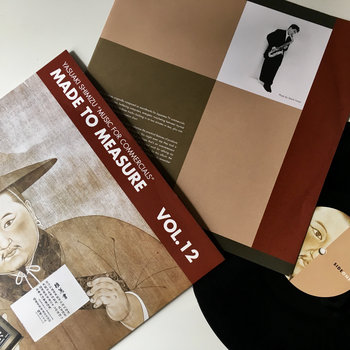

Compact Disc (CD), Vinyl LP

I recently discovered Yasuaki Shimizu’s music. Kakashi was the first album I had and I was really into it, but I think the concept of Music For Commercials turned me off. I didn’t want to hear music that was literally made to sell products. That sounds bizarre to me. But once I did listen to it, yeah, it’s gorgeous. It’s really strange to hear this beautiful short burst and then be like, ‘Oh, this song is about a fucking Bridgestone tire, I guess?’ The fact he named the songs after the products they were advertising was always strange to me. It made me think of art under the constraint of capitalism. All music has been like that. The reason songs were a certain length was because of how much could fit on a record. It constantly evolves, mostly for the worse. Now music is often made for an algorithm. Now it’s made for what can be properly playlisted or go viral on TikTok.
Under that context, I can look at this album as a more pure form of that. It’s very open about what it is. He’s trying to tell a story in 30 seconds or a minute. I think he might’ve edited them a little bit when he put them all on a full-length—somehow all these pieces flow incredibly well. When I finally listened to it I thought it was a lie that he just made it and called it that. But apparently they were actually selling products. He’s taken so many elements but condensed it. It doesn’t feel rushed. Nothing overstays its welcome. It would just feel too busy if some of these things kept going. It’s one of my favorite records at this point.
Even before thinking about what might influence me, I just wanted to listen to music that felt like it could give my life meaning because everything felt so meaningless [during the pandemic]. The really good film scores, or in this case commercial scores, are designed to manipulate you into feeling something. Commercial music always felt dishonest, but in a way everything is dishonest. Every piece of art is supposed to make you feel something. Music For Commercials is just upfront. I just listened to it to make the mundane feel profound. I needed something to make me feel alive, and that’s what it did. Rather than make an album that’s orchestral and takes cues from all the different film scores I like, I wanted to take that ethos of it and try to manipulate some of our songs into a more intentional, dramatic arc than I had in the past. These scores helped me realize what I wanted to do moving forward.”









